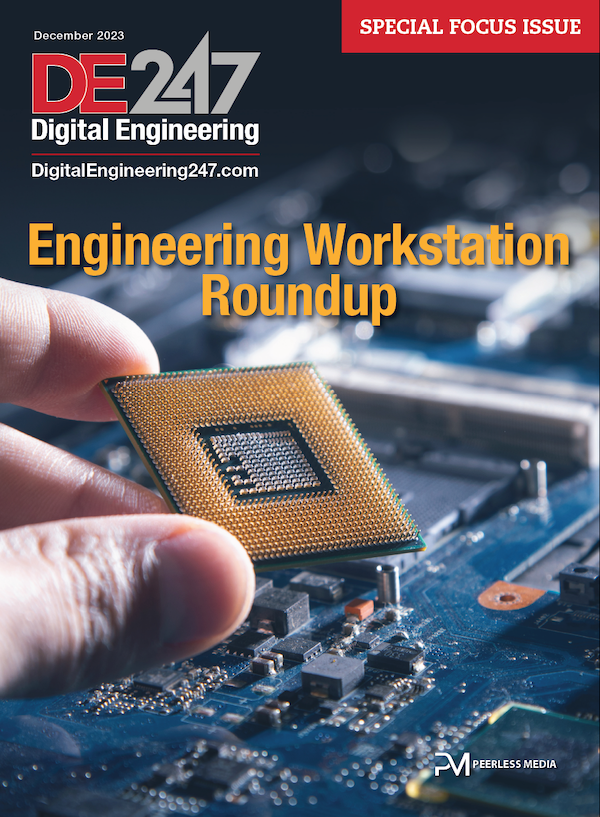It’s Time to Go Beyond the Desktop for HPC-Powered Simulation
Latest News
October 1, 2014
 It’s no longer just industry giants caught in the web of high-stakes product development. Companies of all sizes, across all sectors are dealing with increasing product complexity at a time when budgets remain tight and there’s pressure to get products to market faster, all while deploying fewer resources.
It’s no longer just industry giants caught in the web of high-stakes product development. Companies of all sizes, across all sectors are dealing with increasing product complexity at a time when budgets remain tight and there’s pressure to get products to market faster, all while deploying fewer resources.
Simulation-led design through the use of computer-aided engineering (CAE) tools has become a key enabler, helping organizations zero in on the right products by designing and testing virtual prototypes in lieu of building costly prototypes. But simulation work is being stymied by the constraints of desktop applications and workstations, which can’t deliver the computational horsepower required for these complex modeling efforts.
 HP ProLiant SL2500 Scalable System is an ideal starter system for growing modeling and simulation capabilities beyond the workstation.
HP ProLiant SL2500 Scalable System is an ideal starter system for growing modeling and simulation capabilities beyond the workstation.High performance computing (HPC), a mainstay of industry for decades, provides a robust platform on which engineers can develop and modify product designs, test virtual prototypes, and quickly run through thousands of simulations in real-world conditions. Use of HPC has nearly tripled in the last decade, driven by the advent of new cluster technology, and more affordable industry standard technologies for servers, storage, and networking—in addition to open source HPC software solutions. Yet even within larger firms, CAE users don’t always have ready access to HPC resources, which hinders simulation efforts by keeping them “workstation bound,” unable to tap enough horsepower to achieve effective results. Small- and mid-sized shops face a greater disadvantage, lagging behind larger organizations in HPC adoption due to the high cost and complexity of traditional HPC solutions.
Specifically, there remains a lack of affordable, packaged HPC solutions tailored to meet the needs of small and mid-sized manufacturing companies. Smaller firms typically have limited IT resources and few, if any, have on-staff experts trained in HPC technology with fluency across the myriad interface tools. Moreover, operating an HPC cluster is a far cry from running applications on a desktop workstation. As a result, most engineering users are not trained nor are comfortable with standard tasks like scheduling and submitting simulation jobs to the cluster or handling day-to-day maintenance and support.
Out-of-Box HPC
In recognition of the need, the HPC landscape is undergoing a massive transformation that addresses many of these deployment challenges for smaller organizations. From a pure price/performance ratio, there is no better time to add HPC horsepower to a CAE environment. The advent of Intel® multicore processors, the high-speed InfiniBand communications bus, and increasing memory density set the stage for raw horsepower while CAE applications are continuously being fine-tuned to exploit HPC capabilities.
HPC cluster management tools are also evolving to make it easier to setup, maintain, and support the environments without any specialized training. From a user perspective, optional web-based portals simplify interaction with the HPC clusters, allowing engineers to easily submit jobs and optimize workloads from a familiar Windows or Linux client device. For organizations that require robust levels of HPC horsepower during peak periods, cloud service providers are expanding their footprints to support HPC workloads, adding yet another path to HPC for some CAE applications.
In partnership, HP and Intel have launched the “HPC Innovation Initiative,” which works with business and technology partners to deliver complete reference architectures, turnkey solutions, and community outreach that make HPC out-of-the-box accessible for small and mid-sized firms. By releasing HPC from its ivory R&D tower, organizations of all sizes can finally leverage HPC-driven simulation to bolster innovation and gain a competitive edge.
To find out more about HP’s HPC Innovation Initiative, done in partnership with Intel, go to www.hp.com/go/compete.
This content was sponsored by HP and Intel.
Subscribe to our FREE magazine, FREE email newsletters or both!
Latest News
About the Author
DE’s editors contribute news and new product announcements to Digital Engineering.
Press releases may be sent to them via [email protected].








